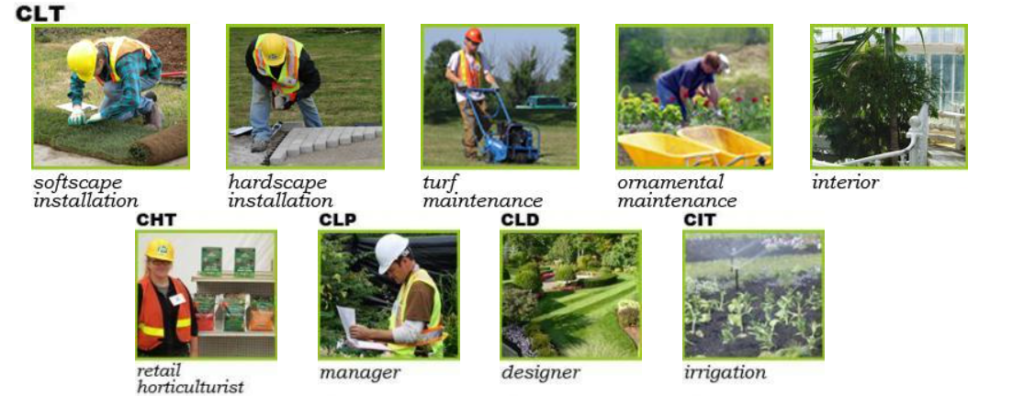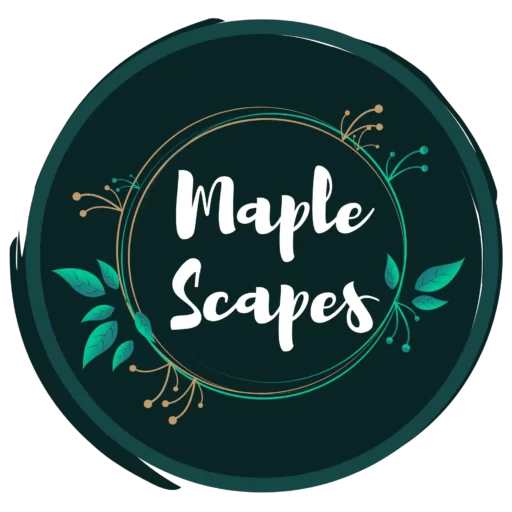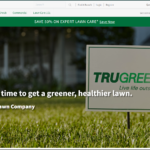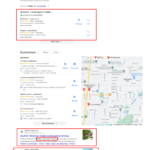Launching a landscaping company? Discover the crucial contractor licenses you’ll require to get started. Find the licenses you need to run your company properly and by local laws. Investigate the appropriate permits and licenses for landscaping services, including any general company licenses, contractor licenses, and maybe any specialized certificates. Learn tips on efficiently managing the licensing procedure so that you can launch your landscaping business with assurance and professionalism.
A lot of things need to be carefully thought out before starting a landscaping firm, including the licenses required to run legally and successfully. These licenses form the basis for assuring adherence to regional laws and winning clients’ trust.
To demonstrate knowledge and skill, the landscape business requires specialized documentation, from environmental permits to contractor licenses.
A critical first step in starting a landscaping business and setting it up for long-term growth and success is understanding and securing the relevant licenses.
General licenses required to start a landscaping business in Canada:
1. Business Registration ®️
Registering the company with the right authorities is important before applying for any special licenses. Depending on your taste and business structure, you can register your landscaping company in Canada as a sole proprietorship, partnership, or corporation. By registering your company, you can be confident that you are regarded as a legitimate corporation and are permitted to conduct business legally.
2. Business Name Registration 📛
You must register a business name if you decide to conduct your landscaping company under a name other than your own. A search must be done to ensure that the selected title is original and not already in use. By registering your company name, you may secure your name from being used by others and build your brand.
3. Municipal Business Licence 🏛
The city or town wherever your business is located will typically ask you to obtain a municipal business license to operate a landscaping firm. Depending on the municipality, this license has different criteria and costs. To learn more about the specific application procedure and any additional permits or laws that might be relevant, get in touch with your local municipal office.
4. Provincial firm Licence 🏢
Operating a landscaping firm in several Canadian provinces may also require a provincial business license in addition to a municipal license. Each region may have different requirements for this license. It’s crucial to learn about the laws that apply in your province and to follow any additional licensing or permit requirements.
5. Contractor’s License 👷
Depending on the type and extent of the landscaping services you offer, a contractor’s license may be required. Landscaping contractors may be required to acquire a specialized license by some provinces or municipalities. With the use of this license, businesses may demonstrate that they have the training, experience, and credentials required to carry out landscaping services. To find out whether a contractor’s license is necessary in your area, contact your local provincial or municipal licensing agency.
6. Pesticide Licence 🪳🪰
You’ll probably require a pesticide applicator’s license if you intend to offer pesticide application services as part of your landscaping firm. The Pest Management Regulatory Agency (PMRA) in Canada sets the standards for this license. You must undergo particular training, pass a test, and follow the rules for safe pesticide usage to acquire a pesticide license.
7. Environmental Permits ♻️
Tree removal, excavation, and construction are just a few of the tasks that landscaping businesses frequently engage in. You might need to get environmental permissions or approvals depending on the type and scope of these activities. These licenses guarantee adherence to environmental laws and cover issues like waste management, erosion prevention, or the preservation of natural habitats. For information on the licenses necessary for your specific operations, get in touch with your local environmental authorities or conservation organizations.
8. Licences for cars and equipment ⚙️
If your landscaping business uses trucks, trailers, excavators, or other large machinery, you may require additional licenses or permits. In addition to vehicle registration, commercial insurance, and specialized licenses for big or overweight vehicles, these regulations can differ by province and municipality. Make sure that all of the machinery and vehicles used in your company are duly registered and insured.
9. Workplace Safety and Insurance 🦺
Employers need to give their employees a safe place to work. Employers must carry workers’ compensation insurance, often known as workplace safety insurance, in the majority of provinces and territories. Employees are safeguarded by this coverage in the event of accidents or injuries sustained at work. To find out about the requirements and procedure for acquiring coverage, get in touch with your province’s workers’ compensation board.
10. Extra Permits and Certificates 📜
You might require extra permits or certificates depending on the specific services your landscaping company provides. For instance, you might require a plumbing or irrigation contractor’s license if you intend to install irrigation systems. You could require an arborist certification if you provide tree-care services.
You can get general information about permits, licenses, and prohibitions about certain services and products on the Canadian government website.
Contractor Licenses Requirements in the Provinces:
Here we will explore the specific licenses needed in different provinces, providing you with essential information to kickstart your landscaping business with confidence.
🅱🅲 British Columbia’s license and permit requirements
In British Columbia, there are two different kinds of licensing requirements for landscapers:
- Registration as a Landscape Architect
- Pesticide Applicator Certificate
1. Licensed Landscape Architect
In British Columbia, the practice of landscape architecture is governed by the BC Society of Landscape Architects (BCSLA). Being a registered landscape architect requires that you:
- Finish a four-year accredited landscape architecture program at a school or college that the BCSLA has approved.
- Pass the LARE, the test for registration as a landscape architect.
- Possess a minimum of two years of experience in the field.
2. Certificate for Pesticide Applicators
A Pesticide Applicator Certificate is required if you intend to use pesticides in your landscaping firm. There are two different kinds of certificates:
- Certificate for Landscape Pesticide Applicators
- Certificate for Structural Pesticide Applicators

To spray pesticides on lawns, gardens, and other landscaped areas, a Landscape Pesticide Applicator Certificate is necessary. For the application of pesticides to buildings, a structural pesticide applicator certificate is necessary.
A Pesticide Applicator Certificate must be obtained by:
- Finishing a training program that has been approved by the Ministry of Environment of BC.
- Acing the written test.
- Checking for any criminal history.
🅰🅱 Alberta’s license and permit requirements
The Alberta government requires licenses from people and businesses that want to work as landscapers or provide landscaping services in Alberta.
The Certified Landscape Technician (CLT) designation, which is offered by the Alberta Nursery Trades Association (ANTA), can help you look more credible. Additionally, a municipal business license is required, and you might also need additional licenses for things like irrigation projects.
It is highly advised for landscaping enterprises to take advantage of the safety training programs offered by the Alberta Construction Safety Association (ACSA).
You may find detailed information about licensing rules on the Alberta Municipal Affairs website, which will help you achieve compliance.
🅾🅽 Ontario’s licenses and permit requirements
The prerequisites for acquiring a landscaping license in Ontario can change depending on the particular municipality or region.
For ambitious landscapers, Ontario has another set of licensing requirements. The Landscape Ontario Horticultural Trades Association’s (LOHTA) Landscape Industry Certified Technician (LICT) accreditation is a symbol of professionalism.

The Ministry of Government and Consumer Services can help with business registration and licensing. Depending on the size of your operations, you can also need permissions for operations like tree removal or pesticide application.
The obtaining of required licenses and permits is facilitated by the Ontario Ministry of Agriculture, Food and Rural Affairs (OMAFRA).
🆀🅲 Quebec licenses and permit requirements
The Régie du bâtiment du Québec (RBQ), which is the province’s licensing body for the construction industry, issues licenses to people and businesses who want to work as landscapers in Quebec.
Starting a landscaping firm in Quebec necessitates securing particular licenses and permits. Professional accreditation from the Association des Paysagistes Professionnels du Québec (APPQ) validates your knowledge and abilities.
Obtaining extra licenses, such as pesticide application permits given by the Ministry of Sustainable Development, Environment, and Climate Change, may be required depending on the nature of your operation. Business licenses must be obtained from the Registrar des Entreprises.
To ensure compliance, it is essential to consult the proper governmental agencies and industry organizations.
🅼🅱 Manitoba’s licensing and permit requirements
Businesses engaged in landscaping in Manitoba often need to adhere to licencing and permit requirements. You can set up a business in Manitoba by registering with the Companies Office or the Manitoba Business Portal.
This action establishes your company’s legitimacy in the eyes of the law. You could need licenses or permits for particular areas of your job as a landscaping company, depending on the precise activities you engage in. An irrigation system installation, for instance, could require a plumbing permit.
A pesticide applicator license can be required if you plan to use pesticides or herbicides. Determine the permits necessary for your specific landscaping services by contacting the relevant regulatory bodies.
-> Other Canadian provinces’ licenses and permits requirements
The licensing requirements for landscaping businesses vary by Canadian province, therefore it is crucial to learn about and comprehend the particular rules in your intended province.
A typical need is obtaining a business license from a nearby municipality. Additionally, licenses and certificates specific to the industry may be required for some actions.
Meeting licensing requirements can be made easier by interacting with regional trade organizations, such as the Atlantic Landscape Horticulture Association (ALPHA) in Atlantic Canada.
You can easily check out the licenses using the Bizpal service (Government of Canada site)
Differences between provincial & federal incorporation

Provincial incorporation and federal incorporation are the two main types of business incorporation in Canada. The key variations between the two are as follows:
- Authority: Federal incorporation is under the authority of the Government of Canada, whereas provincial incorporation is under the jurisdiction of a particular province or territory.
- Area of Operations: A corporation that is provincially incorporated is typically only allowed to operate in the province or territory where it was established. On the other hand, a business that has been federally incorporated is able to operate and do business throughout all of Canada’s provinces and territories.
- Name Protection: If you incorporate provincially, the province or territory in which the business name is registered is the only place where it is protected. Contrarily, federal incorporation offers worldwide name protection, ensuring that your company name is protected throughout all Canadian provinces and territories.
- Regulations and Compliance: Provincial incorporation necessitates adherence to the rules, legislation, and reporting requirements of the province or territory in question. Compliance with the Canada Business Corporations Act (CBCA), which lays out the rules and reporting requirements that apply to enterprises that are federally established, is a requirement for federal incorporation.
- Corporate Taxes: Corporate income taxes apply to both provincially and federally incorporated businesses. However, the federal government and the provinces may have different rates and rules. Businesses having federal incorporation must submit their corporate tax returns to the Canada Revenue Agency (CRA), whereas businesses with provincial incorporation must submit their returns to the appropriate province or territory tax authority.
- Access to Funding and Investors: Since federal incorporation enables a business to operate and look for investment opportunities across the country, it can provide more access to funding and investors. Companies with provincial incorporation could have a harder time luring investors from outside of their particular province or area.
- Charges and Procedures: Provincial and federal incorporation have different charges and procedures. Due to higher registration costs and restrictions, federal incorporation is typically more expensive. Provincial and federal incorporation procedures have different requirements for forms and documentation.
It’s vital to remember that choosing between provincial or federal incorporation depends on a number of variables, including your company’s type, intended operating area, future expansion plans, and other unique situations. It is advised to seek advice from a legal or business expert to ascertain which course of action is most appropriate for your particular circumstance.
Conclusion
Understanding the licensing requirements in different Canadian provinces is crucial for compliance and success. This article has provided an overview of licenses needed in British Columbia, Alberta, Ontario, and Quebec, and highlighted the importance of conducting research for other provinces.
The licenses discussed in this article include business registration, business name registration, municipal and provincial business licenses, contractor’s licenses, pesticide licenses, environmental permits, vehicle and equipment licenses, workplace safety and insurance coverage, and additional permits or certifications specific to your services.
It is essential to research the specific requirements in your area and ensure compliance with all applicable licenses and permits to operate a legitimate and successful landscaping business. Remember to consult relevant government authorities, industry associations, and local municipalities to ensure you have the necessary licenses and permits to launch and thrive in your landscaping business.









